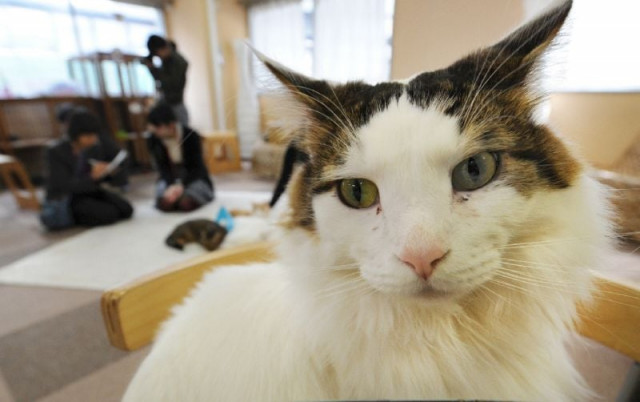Clever kitty: Cats know their names
Researchers in Japan decided to test how well cats are able to distinguish meanings of words that sound similar

Both household and cafe cats showed a similar ability in differentiating their own names from general words. PHOTO: AFP
While dogs' ability to respond to verbal commands from humans has been known for centuries, much less is understood about how cats react to spoken cues.
Researchers in Japan decided to test how well cats are able to distinguish the meanings of words that sound similar to each other.
They studied 78 cats from households and a cat cafe and found most were able to recognise their own names from other words that had the same length and stress -- even when an unfamiliar person was speaking.
Dogs aren't more intelligent than cats, reveals study
"Many cat owners know that cats understand their own names," said Atsuko Saito, from Sophia University's Department of Psychology, told AFP.
"However, there is no scientific evidence about that ability. And people who have no experience keeping cats do not know about the cats' high cognitive ability.
"They seem to associate their name to some rewards or punishments. This is a natural and general learning ability in animals," added Saito, lead author of the study published in the Nature journal Scientific Reports.
In the test scenarios, Saito and her colleagues read each cat a series of like-sounding words followed by the cat's name.
They then measured the cats' responsiveness to each, including ear, head or tail movement as well as movement towards the person speaking.
Cats living swank in their own Silicon Valley apartment
Both household and cafe cats showed a similar ability in differentiating their names from general words.
However, the cafe cats were less able to distinguish their own names from those of other cats. This might be because they frequently heard their own name alongside others, and had learned to associate all those names with reward or punishment.
"There are so many studies about dog ability to communicate with humans," said Saito, who has a male cat, Okara.
"We think it is important to show cats' ability. This will help to make both cat and human welfare better."



















COMMENTS
Comments are moderated and generally will be posted if they are on-topic and not abusive.
For more information, please see our Comments FAQ